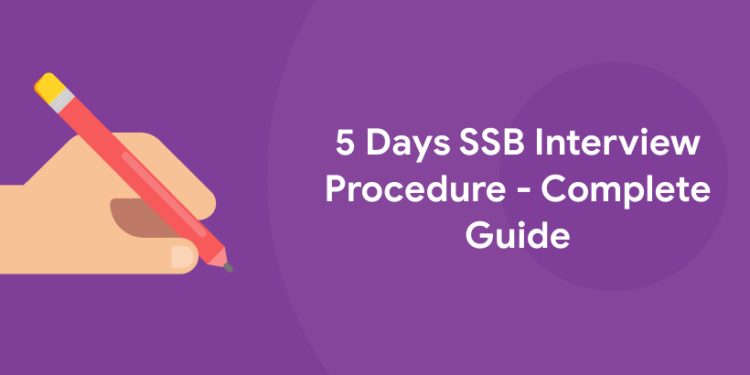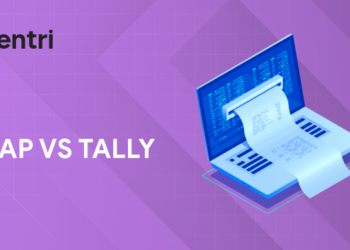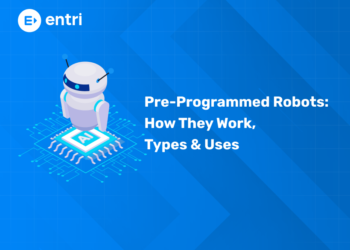Table of Contents
The Services Selection Board (SSB) interview is a procedure spanning over 5 days. It is a comprehensive assessment process employed by the Indian Armed Forces to select suitable candidates for officer positions. This process includes screening tests on Day 1, psychological assessments on Day 2, and group testing exercises on Days 3 and 4. The final day, Day 5, involves a comprehensive review by the board members to determine the candidate’s suitability for an officer position based on the assessments conducted throughout the week. In this article we will discuss 5 Days SSB Interview Procedure – Complete Guide.
Prepare for Government exams: Click here!
What is SSB?
SSB stands for Services Selection Board. It is an organization that assesses potential candidates for officer positions in the Indian Armed Forces. The SSB conducts a rigorous selection process that evaluates candidates based on their intelligence, personality, and compatibility for leadership roles. The selection process includes various psychological tests, group testing exercises, and personal interviews. This test is conducted to determine the suitability of candidates for the respective officer positions in the Indian Army, Navy, and Air Force.
5 Days SSB Interview Procedure – Complete Guide
1: Who was the first woman President of India?
The 5-day Services Selection Board (SSB) interview process is a comprehensive evaluation utilized by the Indian Armed Forces to select officers for the Army, Navy, and Air Force. Each day of the SSB interview is designed to assess various aspects of the candidate’s personality, intelligence, and potential for leadership. Given below is the detailed breakdown of the 5-day SSB interview procedure:
Day 1: Screening Tests
The first day usually involves the Officer Intelligence Rating (OIR) test, which assesses the cognitive abilities and logical reasoning skills of the candidates. Additionally, candidates undergo Picture Perception and Discussion Test (PPDT), where they are required to perceive a picture and create a story based on it, followed by a group discussion. The details of SSB interview procedure for Day 1 is discussed below:
Registration and Orientation:
The day typically begins with the registration process, where candidates are provided with instructions and guidelines for the day’s activities. They receive an orientation about the SSB interview process, the schedule, and the tasks they will be required to perform.
Intelligence Tests:
Candidates undergo the Officer Intelligence Rating (OIR) test, which includes both verbal and non-verbal reasoning sections. The OIR test assesses the cognitive abilities, logical reasoning, and problem-solving skills of the candidates. It is designed to gauge the intellectual potential and analytical aptitude of the candidates.
Picture Perception and Discussion Test (PPDT):
Following the OIR test, candidates participate in the PPDT, where they are shown a hazy picture for a limited duration. They are required to perceive the details of the picture and construct a coherent story based on the information perceived. Subsequently, candidates participate in a group discussion where they collectively analyze and discuss each other’s stories.
Screening:
The assessors screen the candidates based on their performance in the OIR test and the PPDT. Candidates who demonstrate the desired cognitive abilities, effective communication skills, and the potential to be suitable officer material are selected for further evaluation in the subsequent stages of the SSB interview process.
Day 2: Psychological Tests
The second day focuses on psychological assessments that aim to analyze the candidate’s personality traits, including their emotional intelligence, social adaptability, and compatibility for an officer role. Here is a detailed explanation of Day 2:
Thematic Apperception Test (TAT):
The day often begins with the TAT, where candidates are shown a series of ambiguous pictures and are required to write a story based on each picture within a specific time frame. The stories reveal the candidate’s thought process, emotional maturity, and ability to construct coherent narratives under pressure.
Word Association Test (WAT):
Candidates then undergo the WAT, where they are presented with a series of words, one after another, and are expected to articulate the first thought or word that comes to their mind in response to each word. This test provides insights into the candidate’s subconscious and helps assess their psychological attributes, such as attitude, values, and emotional responses.
Situation Reaction Test (SRT):
The SRT is conducted to evaluate how candidates respond to various hypothetical situations and dilemmas they might encounter as future officers. Candidates are presented with different practical scenarios and are expected to provide quick, practical, and effective solutions that demonstrate their decision-making abilities and problem-solving skills.
Self-Description Test (SD):
The day may conclude with the SD, where candidates are required to provide a self-description, highlighting their strengths, weaknesses, achievements, and aspirations. This test allows the assessors to understand the candidate’s self-perception, level of self-awareness, and ability to introspect and communicate effectively about their personality and experiences.
Day 3 : Group Testing Exercises
Day 3 of the 5-day Services Selection Board (SSB) interview process involves various group testing exercises that assess the candidate’s teamwork, leadership potential, decision-making skills, and ability to contribute effectively in a group setting. Here is a detailed explanation of Day 3:
Group Planning Exercise:
Candidates participate in a group planning exercise where they are presented with a hypothetical situation or a complex problem that requires a strategic plan or solution. The candidates, as a group, must analyze the situation, devise a comprehensive plan of action, and present their strategy within a specified timeframe. The exercise evaluates the candidate’s ability to think critically, plan strategically, and work collaboratively with a team.
Progressive Group Task:
Candidates engage in a series of progressively challenging group tasks that test their physical and mental agility, teamwork, and problem-solving skills. These tasks often involve obstacles that must be overcome collectively, fostering cooperation, coordination, and effective communication among the team members.
Group Obstacle Race:
The group obstacle race is a competitive team activity that involves navigating through a series of obstacles within a set time frame. Candidates are required to demonstrate agility, quick decision-making, and effective coordination with their team members to successfully complete the race, emphasizing the importance of teamwork and quick problem-solving in a dynamic environment.
Individual Obstacles:
Candidates navigate through a set of individual obstacles, demonstrating their physical prowess, determination, and resilience in overcoming challenges independently. The assessors evaluate the candidate’s confidence, perseverance, and adaptability to adverse and demanding situations.
Prepare for Government exams: Click here!
Day 4: Group Testing Exercises
Day 4 of the interview process continues the evaluation of the candidate’s performance in various group testing exercises, emphasizing teamwork, leadership, and decision-making skills. Here is a details of Day 4 interview test:
Command Tasks:
Candidates are assigned individual command tasks that require them to lead a small group of peers to accomplish specific objectives within a given time frame. These tasks assess the candidate’s leadership qualities, decision-making abilities, and effective communication while demonstrating their capability to lead and manage a team successfully.
Final Group Task:
The final group task is a comprehensive exercise that combines the elements of teamwork, problem-solving, and effective communication within a simulated challenging scenario. Candidates collaborate with their group members to overcome a complex problem or obstacle, showcasing their collective effort, coordination, and leadership potential under pressure.
Lecturettes:
Candidates may be given the opportunity to deliver short impromptu speeches, known as lecturettes, on a given topic. This exercise assesses the candidate’s ability to articulate their thoughts coherently, demonstrate confidence in public speaking, and effectively communicate their ideas within a limited time frame.
Personal Interview:
Candidates undergo a one-on-one personal interview with an interviewing officer who evaluates their personality, communication skills, knowledge, and suitability for an officer role. The interview assesses the candidate’s awareness, decision-making abilities, and overall attitude, providing the board with a comprehensive understanding of the candidate’s potential and compatibility for the responsibilities of an officer.
Day 5: Conference
The final day, known as the conference, involves a comprehensive review of the candidate’s performance by the board members. The board members analyze the candidate’s overall performance throughout the previous days and make the final decision on their suitability for an officer position. The conference is crucial as it determines the candidate’s selection or rejection for the respective armed forces.Here is a detailed explanation of Day 5:
Conference:
The day begins with a conference where all the assessors and board members convene to discuss and evaluate each candidate’s performance throughout the SSB interview process. The conference serves as a platform for the assessors to review the candidate’s strengths, weaknesses, and overall potential for an officer position.
Final Assessment:
During the conference, the board members consider the candidate’s performance in various tests, group activities, personal interviews, and overall behavior during the 5-day assessment. They deliberate on the candidate’s leadership qualities, communication skills, decision-making abilities, and compatibility for the responsibilities of an officer in the Indian Armed Forces.
Selection or Rejection:
Based on the comprehensive evaluation conducted over the 5-day period, the board members decide whether to recommend the candidate for selection as an officer in the Indian Armed Forces or to reject the candidate’s application. The decision is based on the candidate’s performance, potential, and overall suitability for the demands of an officer role.
Feedback:
Candidates may receive constructive feedback from the board members regarding their performance during the SSB interview process. The feedback aims to provide candidates with insights into their strengths and areas for improvement, allowing them to enhance their skills and qualities for future opportunities.
Free UPSKILLING Courses!
Take your first step toward mastering in-demand skills, acing interviews, and securing top-tier jobs with Entri's free upskilling courses.
Start Learning!Advantages of clearing the SSB interview:
Clearing the Services Selection Board (SSB) interview offers several advantages and opportunities for individuals aspiring to serve in the Indian Armed Forces. Here are some key reasons why clearing the SSB is beneficial:
Commission as an Officer:
Successful candidates who clear the SSB interview are granted the opportunity to join the Indian Armed Forces as officers, with the chance to lead, manage, and serve the nation in various capacities.
Diverse Career Opportunities:
Clearing the SSB opens up diverse career opportunities in the Army, Navy, and Air Force, allowing individuals to pursue careers in fields such as combat, engineering, logistics, administration, and more, depending on their qualifications and interests.
Prestigious and Challenging Roles:
Serving as an officer in the Indian Armed Forces is considered a prestigious and challenging role that involves leading troops, making crucial decisions, and contributing to national security and defense, thereby offering a fulfilling and dynamic career path.
Competitive Salary and Benefits:
Officers in the Indian Armed Forces receive competitive salaries and a range of benefits, including allowances, healthcare facilities, accommodation, insurance, and opportunities for professional development and training, making it an attractive career option.
Personal Growth and Development:
Clearing the SSB interview not only offers a rewarding career but also promotes personal growth and development through exposure to various challenging situations, leadership experiences, and opportunities to enhance skills in communication, teamwork, decision-making, and crisis management.
How to clear the 5 Days SSB Interview Procedure?
Clearing the 5-day Services Selection Board (SSB) interview requires careful preparation, a positive mindset, and a demonstration of key qualities and attributes sought by the Indian Armed Forces. Here are some tips to help you succeed:
Self-awareness and Confidence:
Understand your strengths and weaknesses, and have confidence in your abilities. Display self-confidence without arrogance during the interview process.
Effective Communication:
Practice effective communication skills, both verbal and non-verbal. Focus on clarity, coherence, and logical expression while conveying your thoughts and ideas.
Leadership and Teamwork:
Showcase your leadership potential and teamwork skills during group tasks and discussions. Demonstrate the ability to work collaboratively, communicate effectively, and motivate team members to achieve shared goals.
Decision-making and Problem-solving:
Exhibit sound judgment, quick decision-making abilities, and effective problem-solving skills during various group activities and tasks. Show resilience and adaptability in challenging situations.
Positive Attitude and Adaptability:
Maintain a positive attitude throughout the interview process and demonstrate adaptability to different tasks and situations. Show enthusiasm, a willingness to learn, and the ability to handle pressure with composure.
Time Management and Planning:
Manage your time efficiently during group tasks and individual activities. Prioritize tasks, plan strategically, and demonstrate effective time management skills to complete tasks within stipulated timelines.
Physical and Mental Fitness:
Maintain physical fitness and mental alertness throughout the interview process. Engage in regular exercise, practice meditation or mindfulness, and ensure adequate rest to stay mentally and physically prepared for the demanding tasks.
Knowledge and Awareness:
Stay informed about current affairs, national and international events, and developments in the defense sector. Display a strong understanding of the armed forces, their values, and the role of an officer.
Practice and Mock Interviews:
Participate in mock interviews and practice various SSB tasks to familiarize yourself with the process. Seek guidance from mentors, former candidates, or professionals to refine your skills and approach.
Self-reflection and Improvement:
Continuously reflect on your performance, seek feedback, and work on areas that require improvement. Be open to learning from your experiences and strive for personal growth and development.
5 Days SSB Interview Procedure – Complete Guide: Conclusion
Overall, clearing the SSB interview provides individuals with the opportunity to serve their country with honor, dedication, and a sense of responsibility, while also offering a platform for personal and professional growth in a dynamic and esteemed work environment.
Prepare for Government exams: Click here!
Free UPSKILLING Courses!
Take your first step toward mastering in-demand skills, acing interviews, and securing top-tier jobs with Entri's free upskilling courses.
Start Learning!5 Days SSB Interview Procedure – Complete Guide: Books to Refer
To prepare for the 5-day Services Selection Board (SSB) interview, it is beneficial to consult a variety of resources, including books that provide comprehensive guidance and insights into the SSB selection process. Here are some recommended books that can help you prepare for the SSB interview:
“SSB Interviews & Psycho-Intelligence Tests” by J.B Mall:
This book offers a comprehensive guide to the SSB interview process, including practical tips, sample tests, and strategies for tackling various tasks conducted during the selection process.
“Breaking the Code of SSB Psychological Tests” by N.K. Natarajan:
This book provides valuable insights into the psychological tests conducted during the SSB interview, helping candidates understand the evaluation process and improve their performance through effective preparation techniques.
“Let’s Crack SSB Interview” by SSB Crack:
This comprehensive guide covers all aspects of the SSB interview, including tips for effective communication, leadership skills, group discussions, and mock interview sessions, providing candidates with a holistic understanding of the selection process.
“SSB Interview: The Complete Guide” by Cdr. N. K. Natarajan:
This book offers a detailed overview of the SSB interview stages, along with practical advice on developing the necessary skills and qualities required to succeed in the selection process.
“The Ultimate Guide to SSB Interview” by Arihant Experts:
This guide provides a comprehensive approach to understanding the SSB interview pattern, including tips on effective preparation, self-improvement, and mastering the key attributes sought by the armed forces.
5 Days SSB Interview Procedure – Complete Guide: FAQs?
1. What is the purpose of the SSB interview?
Ans.The SSB interview serves the purpose of selecting potential candidates for officer positions in the Indian Armed Forces by evaluating their intelligence, personality, leadership qualities, and overall suitability for the responsibilities of an officer.
2. How can I prepare for the SSB interview?
Ans. To prepare for the SSB interview, focus on enhancing your communication skills, leadership qualities, problem-solving abilities, and overall personality development. Engage in group activities, practice mock interviews, and stay updated with current affairs and defense-related issues.
3. What are the key qualities sought by the SSB during the interview process?
Ans.The SSB looks for candidates who possess qualities such as effective communication, leadership, teamwork, decision-making, problem-solving, adaptability, and a strong sense of responsibility and commitment towards serving the nation.
4. How important is physical fitness during the SSB interview?
Ans. Physical fitness plays a crucial role during the SSB interview, as it reflects your stamina, endurance, and resilience. Engage in regular exercise, maintain a healthy lifestyle, and participate actively in outdoor activities to ensure physical readiness for the various physical tasks and challenges during the interview.
5. What happens if I fail to clear the SSB interview?
Ans. Failing to clear the SSB interview does not necessarily indicate the end of your career aspirations. It is essential to analyze your performance, seek feedback, and work on improving your skills and attributes for future opportunities. Consider reappearing for the SSB interview after gaining valuable experience and enhancing your overall personality and aptitude.










